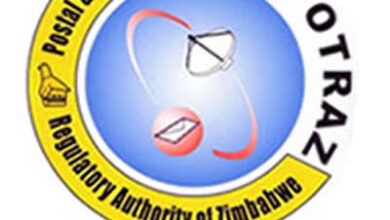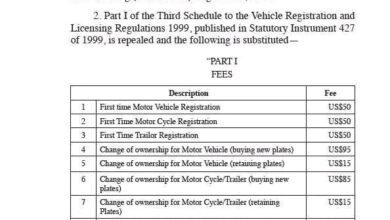IFAD Launches Pilot to Boost Sorghum Mechanization in Zimbabwe

Thembelihle Mhlanga
The International Fund for Agricultural Development (IFAD), in collaboration with the Government of Zimbabwe and private-sector partners, has launched a pilot programme to modernise sorghum post-harvest operations, a move aimed at cutting losses, improving productivity, and strengthening smallholder resilience to climate change.
The initiative, known as the Food and Agriculture Resilience Mission Pillar 3 (FARM P3), was officially launched on October 16, 2025, in Harare. It will focus on mechanising the sorghum value chain, one of Zimbabwe’s most climate-resilient crops — and improving market competitiveness through innovation and public-private partnerships.
“Sorghum is central to Zimbabwe’s climate resilience, yet farmers struggle to scale, and markets remain untapped,” said Alex Nyakatsapa, IFAD’s Senior Value Chain and Agribusiness Advisor. “By engaging private-sector partners from the start, the FARM P3 pilot opens a pathway to overcome these challenges and spread benefits across the entire supply chain.”
Manual post-harvest methods remain a major bottleneck for sorghum producers, requiring up to 15 labourers per hectare and resulting in losses of 20–30 percent. The new mechanised model will cut the labour requirement to just two or three operators, while reducing waste and improving grain quality.
Backed by USD 320,000 in financing, the one-year pilot (June 2025 – June 2026) targets 6,000 smallholder farmers in the Mashonaland, Matabeleland, and Midlands provinces.
The programme will identify and mentor about 50 mechanisation service providers, mainly youth and lead farmers, to run small agricultural enterprises offering mobile threshing and other services. Financial institutions and off-takers will assess these operators to ensure sustainable, credit-worthy business models.
“We not only test equipment that raises smallholder incomes, but also build business models that make mechanisation affordable, profitable, and sustainable,” said Francesco Rispoli, IFAD Country Director.
FARM P3 complements IFAD’s Smallholder Agriculture Cluster Project (SACP), which already supports 800 agribusiness groups, 200 SMEs, and 40 off-takers across 18 districts. SACP promotes climate-smart, market-driven agriculture through grants, financial linkages, and business-development services.
Mechanisation trials under FARM P3 will test up to 16 types of equipment, including threshers, transport units, and conservation-agriculture tools such as no-till systems.
Launched under France’s Presidency of the Council of the European Union, FARM P3 is hosted by IFAD and is also active in Rwanda, Senegal, and Sierra Leone. It seeks to strengthen Africa’s food security through private-sector-led agricultural mechanisation.
In Zimbabwe, the project signals a crucial step toward modernising smallholder farming. Nyakatsapa summed it up:
“We are providing just the right amount of support to build self-sustaining models that could transform smallholder livelihoods for years to come.”




